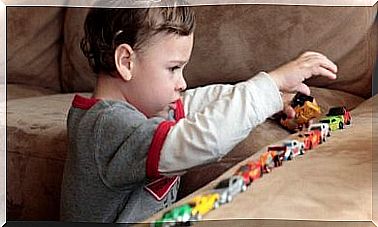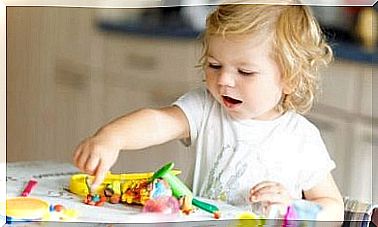Why Is It Important To Validate Children’s Emotions? – Being Parents

The majority of today’s parents have experienced an authoritarian education, based on high demands and low sensitivity. Now that they have children of their own, they want to act in a different way, taking connection and respect as their pillars. They still don’t know how to give something they haven’t received.
However, in order to educate, it is sometimes necessary to learn: this is perfectly normal. We will therefore, through this article, explain how to validate children’s emotions.
When we become parents, we often repeat the patterns of our own upbringing. In the end, that’s what we know best. However, if we have realized that we want to establish a healthier and stronger bond with our children, the path begins with their own emotions. We need to help them understand them, manage them and make sense of them.
Emotional invalidation
With the haste and the daily obligations, we often forget to take the time to think before acting. We need to get our children to shower, eat and go to bed before 10 p.m.
We feel like we can’t waste time with our kid’s tantrum because he didn’t want to leave the park. Or because he didn’t want to get out of the tub. Or because he doesn’t like the clothes he has to wear.

To us, their reasons seem trivial compared to their disproportionate reaction, and we begin to believe that they behave in this way to challenge us. However, if we put ourselves in their shoes for a moment, we would understand that for them these reasons are important. The emotional intensity they feel is such that they do not know how to express themselves in any other way.
We must remember that this is not a personal attack. Children don’t want to bother us or manipulate us: there is no need to enter into a power struggle with them. On the contrary: they need our understanding and our advice to learn to manage this emotional state that invades them.
When we ignore their crying, pick it up because they are upset, or value the reasons for their worry, we send them the following message: their emotions are not important ; they are not valid; they don’t have the right to express or feel them and, if they do, we will get angry or not like them as much.
They will therefore begin to repress their emotions and experience them with discomfort because denying them will not make them disappear. Children will feel lost and uncertain about them and will grow up having difficulty dealing with and understanding their feelings and those of others.
How to validate children’s emotions
It is therefore essential to think before acting in the face of children’s emotions. Our first impulse is perhaps to tell them that older children do not cry or that they waste our time, but if we take a step back, we will understand that it is better to take this time to accompany the child through this emotional overflow. To validate children’s emotions, we can take the following steps:

- Put a name on what they are feeling. Often, children fail to identify precisely the emotion that overwhelms them. By doing this, we are helping them.
- Validate the emotion by explaining to the child that this is a normal reaction and that he has the right to feel it.
- Explain the reasons to them. They may not understand them or they may not seem convincing to them, but it is important to talk to them about it.
- Offer them tools to deal with these emotions. They should be taught that the intensity of the latter may decrease if they modify their thoughts or seek an alternative.
So we could explain to them, “ I see you’re upset because you have to get out of the tub. It is quite normal for you to get angry because you have to stop playing and you are feeling good, but it is late and we have to go eat. If you want, you can help me prepare the omelet, like a real cook ” .
Connection and respect
Instead of downplaying his emotions or letting ourselves be upset by his anger, we made room for his feelings. We connected to him, we understood him and accompanied him. We also offered him an alternative to reduce his discomfort. By doing so, the child will feel loved, respected and calmed. He will learn to identify his own emotional states and deal with them in a healthy way. And, most importantly, he will forge a bond of trust and affection with us.









